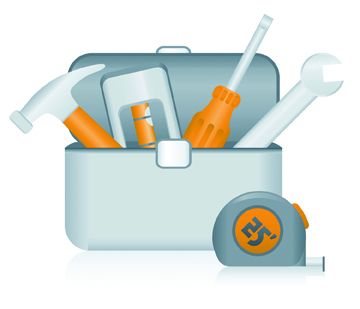
February 2015 Management Toolbox

What Are You Doing Differently This Year?
You can resolve to make a change any day of the week, but New Year’s resolutions continue to be popular as we start fresh with a new calendar. As 2015 begins, what kinds of changes do you want to make across the next year, particularly in your management career? Following are several potential resolutions to consider, whether you’ve already started your list or are still looking for inspiration.
Spend time figuring out what you shouldn’t be spending time on. That seems like a counterintuitive statement, but think about it for a moment. Many of us have a great number of professional responsibilities, perhaps more now than ever before. Are you doing everything well? Are some tasks continually falling to the bottom of your priority list? It’s worth taking the time to make a list of everything you’re responsible for, determining what is not getting your attention and why, and then delegating those responsibilities that would be better fulfilled by someone else.
Become an even better role model. Most managers are already good role models; your ability to lead by example is likely part of the reason you were hired into a management position. And yet, there’s no time like the present to work on becoming an even better leader. You can tell everyone around you what you think they should do and how you think they should act, but people will always pay more attention to your actions than your words. If you want to see positive changes in the people you manage, you must show others that you’re also working to make personal improvements.
Use your voice. It isn’t always easy to speak up when you feel that something is wrong. There may be unexpected consequences or expected consequences that you don’t want to face. At the same time, if you don’t say what’s on your mind – with respect, of course – you will never know the kind of change you may have been able to influence.
Take time for yourself. You won’t be of much use to anyone if you don’t take time to relax and recharge. Work-life balance is so important, and while it’s something Americans talk about a lot, many of us aren’t very good at it. But just think about that cliché question: At the end of your life, what will you remember more, all of the hours you worked or all of the memories you made with the people who are special to you? Work can be wonderful and inspiring and fulfilling, but the time you spend alone and with loved ones can be all of those things, too.
*****
Don’t Be Afraid to Ask for Help
Have you ever been afraid to ask for help at work? Why were you afraid? Did you feel as though it would make you appear weak or incompetent to your boss, your subordinates or others at the company? What were the results of you not asking for help? Did the task or project get completed safely and on time? Were the end results as good as they could have been if you had reached out for help?
At one time or another, we have all been concerned about what other people think of us. That is part of being human. But it’s important to realize that another part of being human is the inability to do everything on our own. Eventually, we will need another person’s help, or maybe many other people’s help. The sooner you can learn when and how to ask for assistance, the sooner you will realize that there is absolutely nothing weak or incompetent about seeking a lending hand. Not only that, but requesting assistance with a job-related task can help lead to a safer, more productive work environment.
So, when is a good time to ask for help? The best answer to that is, whenever you’re unsure about something. Do you need clarification about a specific work procedure? Instead of beginning the procedure and hoping everything turns out OK, stop and ask someone more knowledgeable to lead you through the steps. Are you working on a project that has elements that are outside your scope of knowledge? Take time to identify and reach out to people who have the expertise you need to successfully complete the project.
Timing is critical as well. If something unsafe could happen quickly, there’s no time to waste – you must immediately stop and ask for help. However, if a situation isn’t potentially life-threatening, you can handle things a bit differently. For the best results, ask for someone’s help when they don’t seem overwhelmed. If you can tell that person is already swamped, they may feel unable to help. You should also give the person enough time to assist you. If it’s 4 p.m. on a Tuesday and you need help writing a report that’s due at 9 a.m. the next day, you may not have much luck.
In addition to knowing when to ask for help, it’s also important to know how to ask for help. To start, remember to never put yourself down. For instance, instead of saying to another crew member, “Wow, I’m really terrible at this and I have no idea what I’m doing,” try saying, “I understand the basic principles of this task, but I’d love for you to go over the details with me again.” In the second statement, you are showing respect for yourself while explaining what you already know and what guidance you need from the other crew member.

